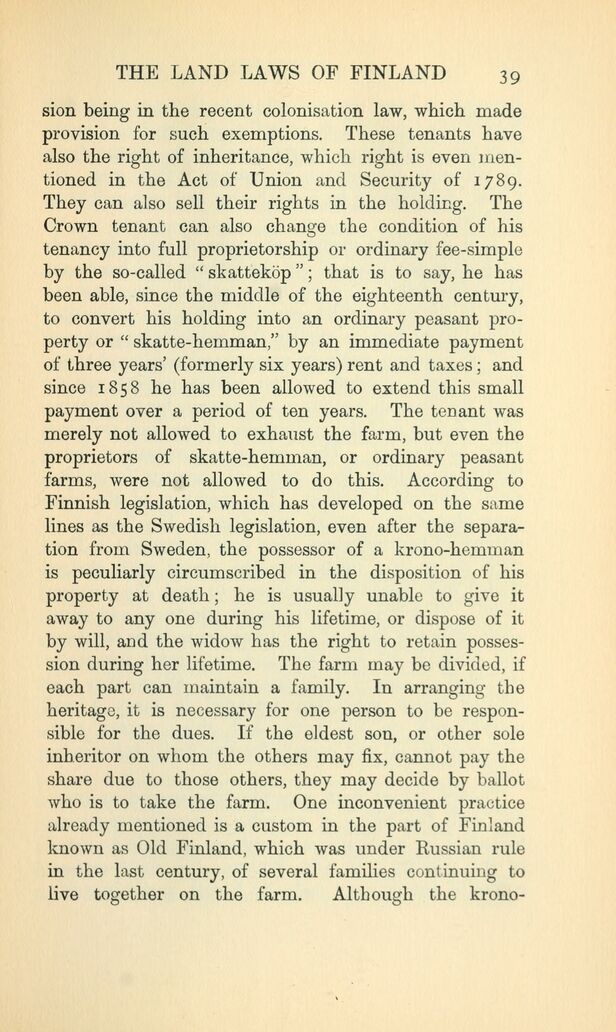
Full resolution (JPEG) - On this page / på denna sida - III. The Land Laws of Finland

<< prev. page << föreg. sida << >> nästa sida >> next page >>
Below is the raw OCR text
from the above scanned image.
Do you see an error? Proofread the page now!
Här nedan syns maskintolkade texten från faksimilbilden ovan.
Ser du något fel? Korrekturläs sidan nu!
This page has been proofread at least once.
(diff)
(history)
Denna sida har korrekturlästs minst en gång.
(skillnad)
(historik)
occasion being in the recent colonisation law, which made
provision for such exemptions. These tenants have
also the right of inheritance, which right is even
mentioned in the Act of Union and Security of 1789.
They can also sell their rights in the holding. The
Crown tenant can also change the condition of his
tenancy into full proprietorship or ordinary fee-simple
by the so-called “skatteköp”; that is to say, he has
been able, since the middle of the eighteenth century,
to convert his holding into an ordinary peasant
property or “skatte-hemman,” by an immediate payment
of three years’ (formerly six years) rent and taxes; and
since 1858 he has been allowed to extend this small
payment over a period of ten years. The tenant was
merely not allowed to exhaust the farm, but even the
proprietors of skatte-hemman, or ordinary peasant
farms, were not allowed to do this. According to
Finnish legislation, which has developed on the same
lines as the Swedish legislation, even after the
separation from Sweden, the possessor of a krono-hemman
is peculiarly circumscribed in the disposition of his
property at death; he is usually unable to give it
away to any one during his lifetime, or dispose of it
by will, and the widow has the right to retain
possession during her lifetime. The farm may be divided, if
each part can maintain a family. In arranging the
heritage, it is necessary for one person to be
responsible for the dues. If the eldest son, or other sole
inheritor on whom the others may fix, cannot pay the
share due to those others, they may decide by ballot
who is to take the farm. One inconvenient practice
already mentioned is a custom in the part of Finland
known as Old Finland, which was under Russian rule
in the last century, of several families continuing to
live together on the farm. Although the
<< prev. page << föreg. sida << >> nästa sida >> next page >>